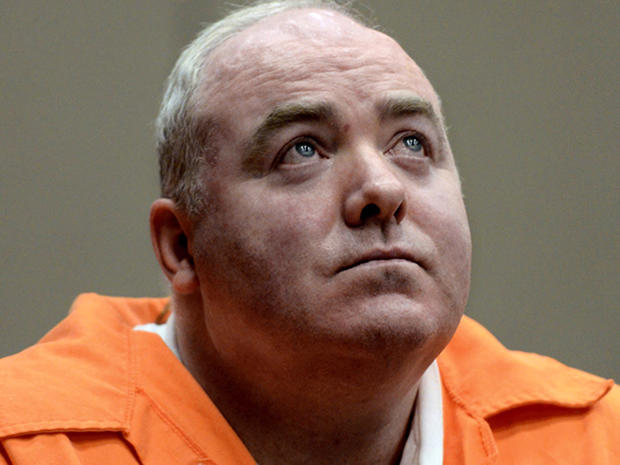Kennedy cousin Michael Skakel proclaims innocence in 1975 murder, requests parole
(CBS/AP) SUFFIELD, Conn. - Kennedy cousin Michael Skakel Wednesday proclaimed his innocence during his first parole hearing on whether he should be released from prison a decade after being convicted of killing his neighbor, Martha Moxley.
Skakel, 52, is serving 20 years to life for fatally beating Moxley with a golf club in 1975 in Greenwich, Conn., when they were both 15 years old. Skakel is a nephew of Ethel Kennedy, the widow of Robert F. Kennedy. He was convicted in 2002.
"I did not commit this crime," Skakel said during his hearing at McDougall-Walker Correctional Institution in Suffield.
Dorothy Moxley, the victim's mother, rejected Skakel's claims of innocence.
Skakel said he prays every day that whoever committed the crime is brought to justice, but that he is the wrong man.
"If I could ease Mrs. Moxley's pain in any way, shape or form I would take responsibility all day long for this crime," Skakel said. But, he added, "I cannot bear false witness against myself."
To support his claims of innocence, Skakel talked about how he became sober.
"I pose to you: how can a guilty man stay sober for 30 years with that kind of guilt on his mind?," he said.
Skakel's cousin, Robert F. Kennedy Jr., wrote to the parole board about how Skakel helped alcoholics recover. Letters from other supporters also portray Skakel as religious and a devoted father, as well as citing his artwork in prison, saying he made uplifting paintings that show his true nature, give joy to others and encourage family values.
Letters objecting to his parole cite the brutal nature of the crime and say releasing him early would be devastating to the victim's family.
"This person committed a heinous crime that gave many people a sentence of suffering that was irreversible," one of the letters states. "Why then should this person be given relief, when none is available for those who suffered the loss of a daughter, a sister, a dear friend."
